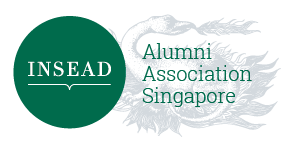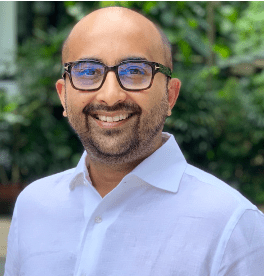Hearing from Gurpreet Singh – Chief Commercial Officer (CCO) at RightShip

Can you tell us about your experience winning this award and what it means for your business?
Personally, I was humbled by the opportunity to be part of the BAFG nominees and then winning the award. What I found really insightful was to meet other business leaders in the BAFG community, and fellow-INSEAD alums as we got together and celebrate why BAFG matters. To me, this is core to what INSEAD does in advocating doing business as a force for good in this VUCA world. A sustainable business is one that is grounded on good and ethical business practices, hence it only makes sense that we as INSEADers champion such efforts. For RightShip, the recognition means that we have to continue to strive in what we do – our vision is about driving zero harm the maritime ecosystem. And we do this by leveraging on data and technology to provide insights around Environmental, Social and Governance to our customers, suppliers and other players in this diverse industry. For us, the quest towards driving towards zero harm in sustainability and safety hence continues.
Can you discuss any unique or innovative approaches your business has taken to be a force for good?
Absolutely. We continue to evolve our propositions as the industry evolves and as there is an increased awareness around sustainable business practices. For example – with global increased concerns around ship emissions, we have launched the RightShip Carbon Accounting tool. This tool empowers charterers and owners to measure, track and reduce their emissions footprint.
With developing environmental regulations by the International Maritime Organisation (IMO) that are being introduced in 2023, we are also evolving our GHG Rating solution. This rating would thus be updated to incorporate an additional index, the Energy Efficiency Existing Ship Index (EEXI) values, into its rating. At present, more than 46 000 vessels on our RightShip Platform have a GHG Rating, with around 180 chartering customers leveraging the valuable environmental rating in their due diligence processes in the last year alone. As regulations become ever more complicated, RightShip will continue to support more customers with their sustainability requirements.
To continue to drive fair and good living and working conditions of seafarers onboard ships, our Crew Welfare Self Assessment questionnaire continues to raise awareness of crew welfare, and driving its importance via a Code of Conduct that we have formulated in collaboration with the Sustainable Shipping Initiative (SSI) along with Institute for Human Rights and Business (IHRB). We continue to work with members in the shipping ecosystem to join us on this journey to make a commitment to improve welfare for seafarers. To share a recent development, we have also released a report (2023 Seafarer Abandonment Report by RightShip) on our website. This write-up provides some telling facts about the situation with our industry, with the intention to raise further awareness of this pertinent issue, and enroll interested parties to learn more and join us in the quest for zero harm.
Can you discuss any partnerships or collaborations your business has formed in order to have a greater positive impact?
In RightShip, we have a strong calling and a clear vision, in driving for zero harm. However, we recognize that we cannot do it alone. Hence partnerships, is a key enabler for us to reach out to create a greater positive impact. Late last year, we’ve announced a collaboration with Veson Nautical, a software company that enables commercial maritime freight. The integration with Veson allows subscribers to access RightShip data, and hence make commercial decisions that would also take safety and sustainability into account.
Meeting our 2023 Judges – Interview series
Post #1 – Diana Gan – Founder of Elementary Capital
Post #2- Kaushik Burman – General Manager & Managing Director at Gogoro India Pvt Ltd)
Post #3 – Dr Vinika D. Rao – Executive Director, INSEAD Emerging Markets, Gender & Africa Initiatives; Asia Director, HGIBS
Post #4 – Mike Summers – Defence & Security Director, Singapore (ASEAN); Australia Trade and Investment Commission; Australian High Commission, Singapore
Post #5 – Nadir Zafar – Chief Experience Officer, Human Capital Leadership Institute
Post #6 – Tan Han Wee – Partner at Ernst & Young
Post #7 – David Mair – CEO at Republic Consulting & Secretary-General at INSEAD Alumni Association
Catch-up with 2022 Winners – Interview series
Post #1 – Michelle Woo, VP Venture Build, ENGIE Factory Asia Pacific (Corporate Winner)
Post #2 – Masami Soto, Founder of Buy One Give One – Empirics Asia
Post #3 – Gurpreet Singh, Chief Commercial Officer (CCO) at RightShip
Catch-up with 2022 Judges – Interview series
Post #1 – Li Lian Liew GEMBA’13 – Director, Corporate Planning at Tan Tock Seng Hospital & Central Health
Post #2 – Apo Ozkececi MCCC’19Dec-S – SVP Commercial & Regional Head, Asia Pacific, Accelya








